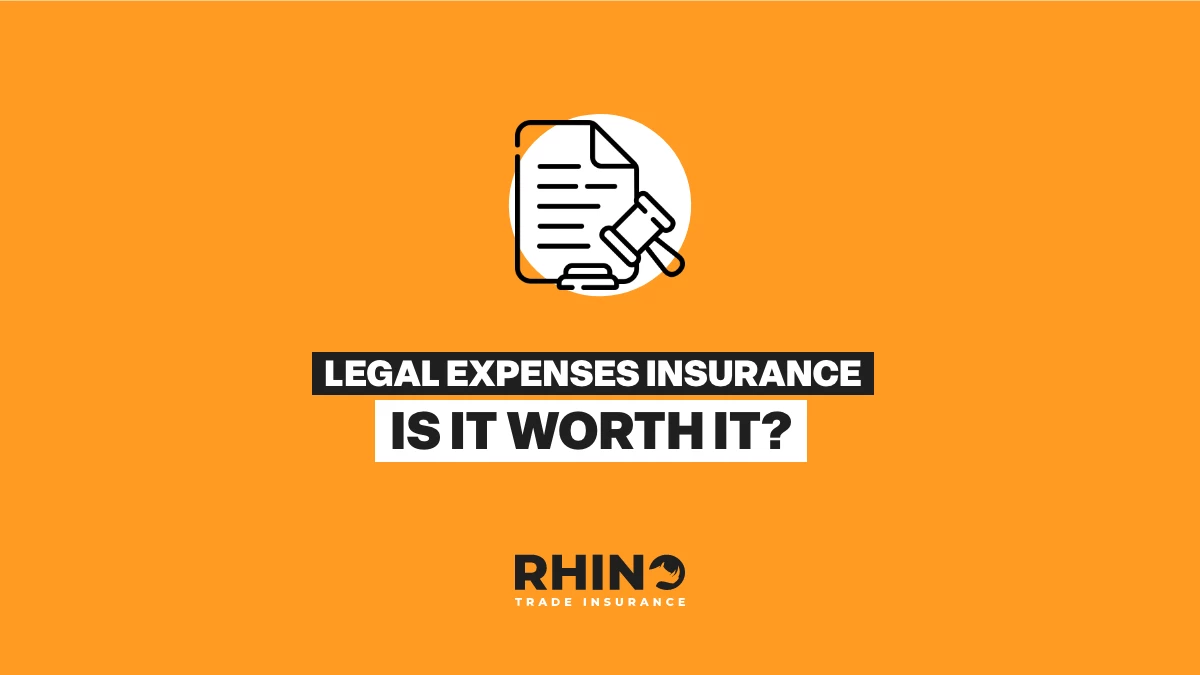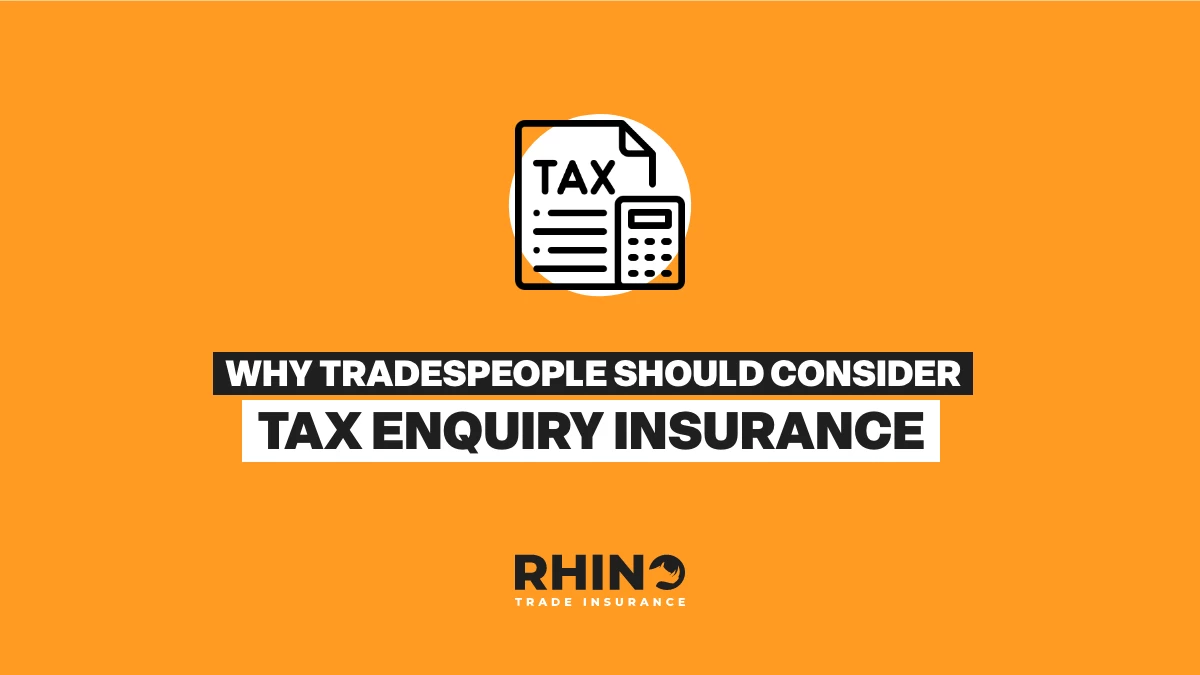
Legal Expenses Insurance – Is it Worth It?
Legal Expenses Insurance for tradespeople explained—what it covers, when you might need it, and how it protects against costly legal fees.
Ten or maybe even twenty years from now – even if your company grows to employ many tradespeople – a stand out memory will be when you took the plunge and hired your first employee.
It’s a moment of truth and it leaves a lasting impression. You move beyond the concerns of a one-person business and take the risks and responsibilities of being - formally - an employer. You also, of course, open up the potential for growth.
If you are at this point and can see far enough ahead to believe you will gain by appointing a full or part-time employee, then a whole new era is about to start. And as a tradesman, there are some questions you will need to address about exactly what the role is, how to find the right person and some vital things you need to know about your legal obligations as an employer, including having the correct tradesman insurance.
So, here is a checklist that should help when hiring your first employee as a tradesperson...
Think through and get clear on the role and write the job definition. Identify the impact you want the new person to have on your business. Do this even if you already know the person you have in mind for the job.
Decide how much to pay - you must pay your employee at least the National Minimum Wage. Head to the Government website for the most up to date information on this.
Decide on which channels of recruitment to use – will you advertise, go through a recruitment agency, or use social media or professional networks?
Prepare yourself to be thorough and convincing in interviewing, so that you make the right choice - and so that that right person wants to work for you.
When you have found the tradesman or tradeswoman you want to hire, make sure to check their references. You should also ensure this person has the legal right to work in the UK.
There’s every chance you may have to carry out other employment checks, like a DBS check (formerly known as a CRB check) if you work in a field that requires one.
Send details of the job (including terms and conditions) in writing to your new employee. By law, you need to give them a written statement of employment if you’re employing someone for more than one month.
Tell HMRC by registering as an employer – you can do this up to 4 weeks before you pay your new staff. As an employer, you will be responsible for paying your staff a pre-agreed salary and deducting any PAYE (income tax) and National Insurance Contributions from staff salaries.
Check if you need to enrol your employee into a workplace pension scheme. As of 2018, Auto Enrolment now applies to UK employers, meaning that by law an employer is now required to contribute to their employees’ pensions. Pension Bee offers useful advice on this.
Tradespeople must take out employment insurance - you need employers’ liability insurance as soon as you become an employer. This type of cover will protect your business from claims made by employees injured or who fall ill at work. You are required to take out adequate EL insurance cover under the Employers’ Liability (Compulsory Insurance) Act 1969.
Not doing this isn’t an option, because HMRC can fine you £2,500 for every day you aren’t properly insured. Our tradesman liability insurance costs as little as £77 per year
Be ready to pay your employee properly. You need to provide each employee with a payslip which details their gross and net pay, income tax and NICs deducted, and any other deductions (such as pensions contributions).
Since the implementation of the RTI (Real Time Information) regime in 2013, you also need to submit this data to HMRC each time you pay your staff. Previously, this information was provided at the end of each tax year.
Make yourself aware of your obligations in Health & Safety. You will be responsible for providing your employees with a safe and secure environment to work in. You don’t need a formal written H&S policy unless you have five or more employees, however, you should take time to assess the risks your staff face at work.
Again, legal expenses insurance is designed to protect you financially from Health & Safety prosecutions.
Be aware of holiday and sick pay and maternity/paternity pay rules. There is a wide range of legislation governing the right of employees to take time off - either for holidays or due to forced periods of absence.
If things don’t work out, you need to be clear on how to do handle the situation properly. If you don’t conduct the dismissal fairly (or an employee resigns because you have breached your contract with them), they might decide to take your business to an employment tribunal. And these can be painful and costly. Again, this is where employers’ liability insurance is vital.
Legal Expenses Insurance for tradespeople explained—what it covers, when you might need it, and how it protects against costly legal fees.
Worried about a tax investigation? With HMRC cracking down in 2025, Tax Enquiry Insurance from Rhino gives UK tradespeople expert protection and peace of mind.
Rhino Trade Insurance CEO Troy Stevens joins industry leaders at the House of Commons to discuss the rising issue of tool theft—highlighting its impact on UK tradespeople and the importance of awareness and protection.
Tell us your trade and get a tailored insurance quote for your business in seconds
Our team of experts are available to talk to Mon-Fri 08.30-17.30 and Sat 10.00-14.00

